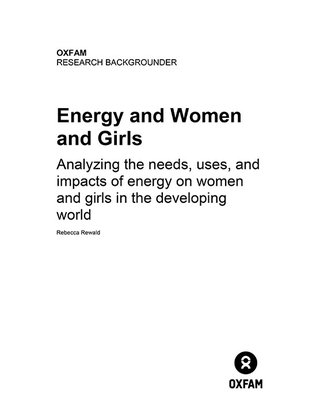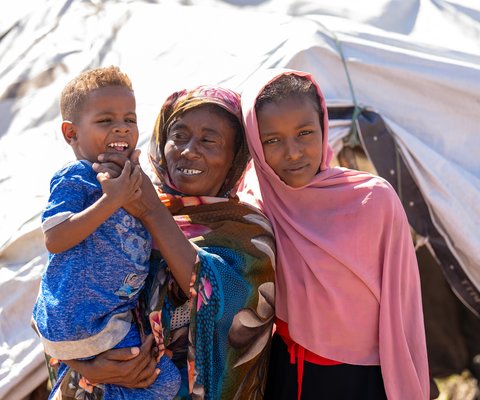
Energy and Women and Girls: Analyzing the needs, uses, and impacts of energy on women and girls in the developing world
Energy has undoubtedly become a significant part of the development agenda, a reality reflected in the many claims made by members of the development community about the importance of energy access for improving the lives of the poor, especially women and girls.
This discourse includes an implicit assumption that, because of the burdens of energy poverty, energy access itself automatically benefits women and girls. This paper tests that assumption and finds that ensuring that energy access provides benefits to women requires much more than simply providing energy.The paper comes to its conclusion by analyzing the existing literature to look at if and how access to improved energy sources does better the lives of poor women around the world. Additionally, this paper looks briefly at what information exists on the benefits of low-carbon energy access for women in poor, rural communities. In order to explore these topics adequately, the paper begins by asking some key prerequisite questions: What are women’s traditional household roles, and what energy sources and services do they rely on to perform these roles? How does a lack of access to modern energy currently affect them?


